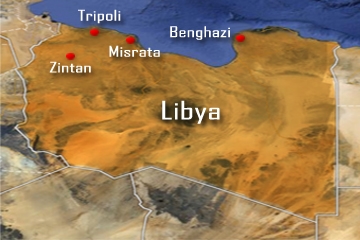The Libyan revolution was both armed and non-centralised; and when the regime collapsed, the challenge was how the rebels would agree to hand over their weapons to a central authority. However, recent conflicts suggest that the new leadership does not enjoy sufficient legitimacy to impose its power.

There is more to what happened in Libya than disagreement between the regime and political opposition in the areas that experienced political crises and subsequently developed into armed conflict. The peculiarity of the Libyan case is not limited to imbalance between the regime and the opposition, which was mostly formed after the outbreak of the armed conflict. It stems, rather, from the regime’s utilisation of social contradictions (tribal and regional) to the extent that its repercussions are undermining the gains achieved by the revolution.